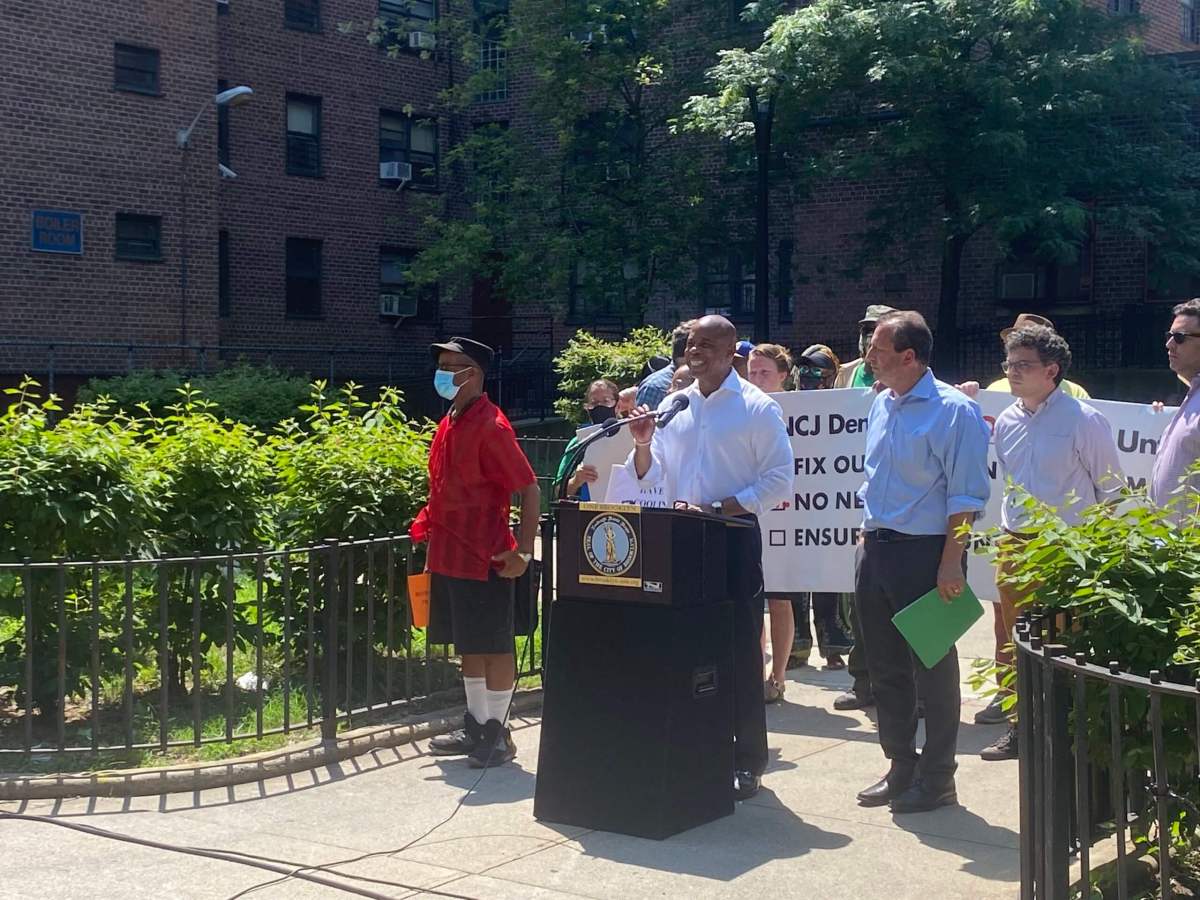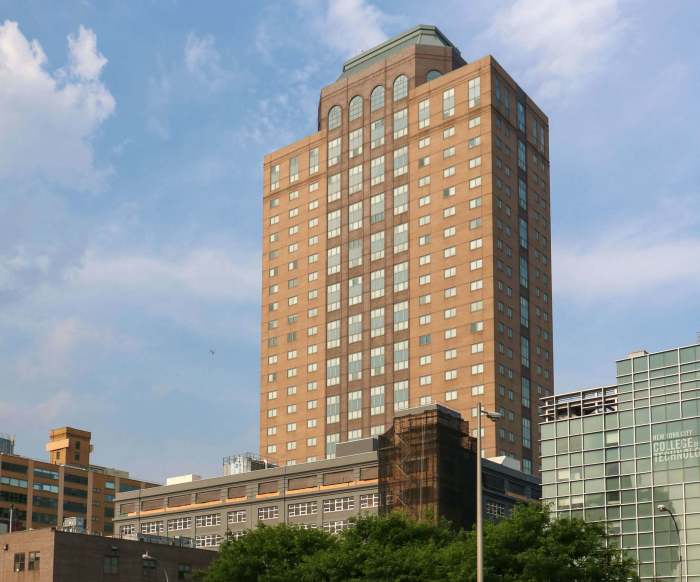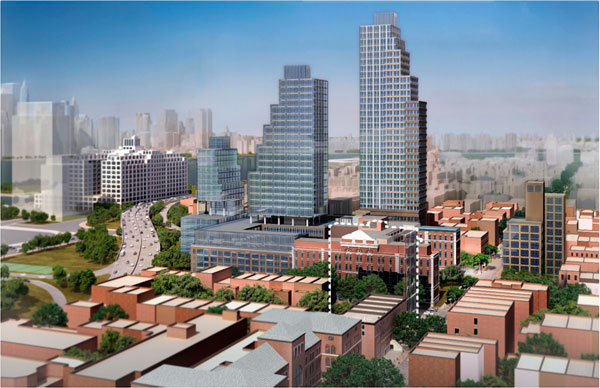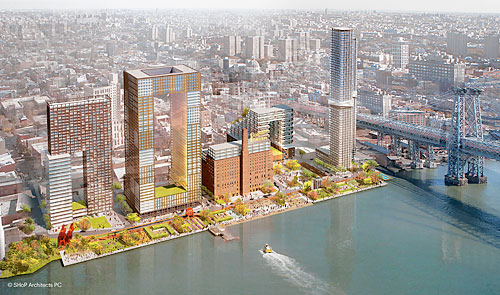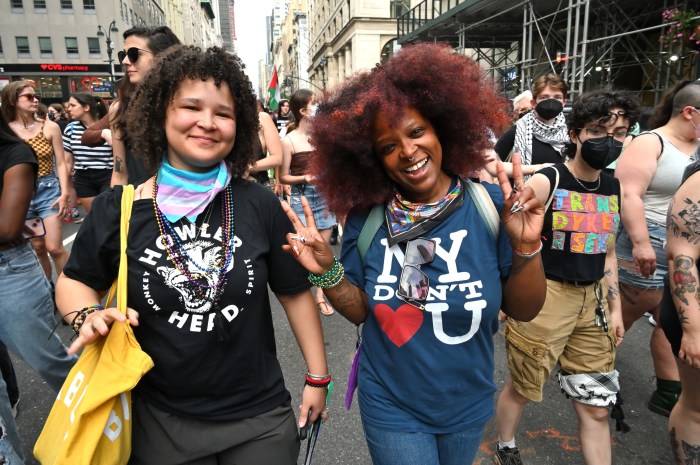Weeks after he voiced his support for the Gowanus rezoning, Borough President Eric Adams formalized his approval – with conditions. The beep’s report to the City Planning Commission included 38 recommendations to the Gowanus Neighborhood Project.
“We believe what we are doing here in Gowanus can serve as a model for future rezoning processes throughout the City, particularly those that are expected to attract a significant amount of private investment,” Adams said. “Every rezoning must take into account the needs of long-time residents, and deliver real results for those with the greatest need. These recommendations lay out a path for achieving that.”
Adams announced he’d approve the project at an Aug. 13 press conference at Gowanus Houses, but said his support was contingent on the city agreeing to fund long-needed capital improvement projects at Gowanus Houses and Wyckoff Gardens, an estimated $274 million between the two New York City Housing Authority complexes.
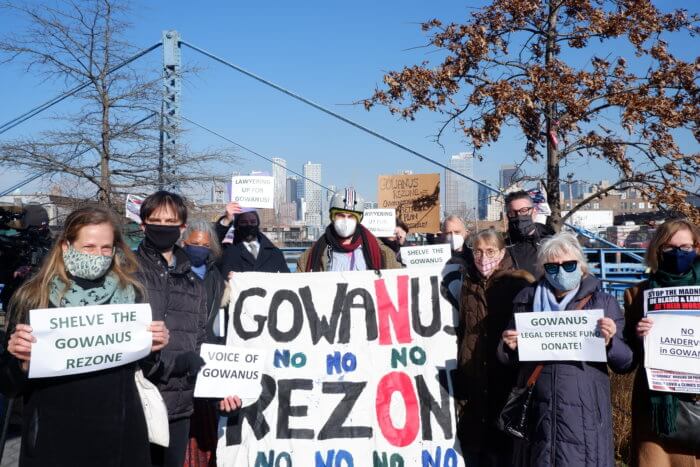
According to the detailed recommendations, which were sent to the City Planning Commission on Aug. 24, the beep also weighed testimony made during a June 30 public meeting, where 19 people spoke out in favor of the rezoning and 32, many representing the Gowanus Neighborhood Coalition for Justice, testified against it.
Those against cited concerns about whether affordable housing promised by the rezoning would truly be affordable, and if 8,000 new apartments built in the rezoning could overwhelm sewer systems, re-polluting the Gowanus Canal as the federal Environmental Protection agency works to clean up the Superfund site, dredging 10 feet of toxic black sludge from the whole of the 1.8 mile stretch.
They also cited ethical concerns about building Gowanus Green, a 950-unit affordable housing development, on Public Place, saying they believe full remediation of the site is “impossible.”
Public Place, formerly a manufactured gas plant, is undergoing remediation to clean up a century’s worth of toxic byproducts from gas production, scheduled to end this summer. Earlier this year, an EPA official who has spent the last decade working on the Gowanus cleanup voiced concerns that the cleanup would not be enough to keep tenants in the new building safe.
The coalition has three primary concerns, including providing full funding for Wyckoff Gardens and Gowanus Houses and ensuring “net zero combined sewage overflow,” mandating that the city invest in updating infrastructure to mitigate potential overflow.
Their final concern, shared by Adams and CB6, is creating a “Gowanus Zoning Commitment Task Force,” which would independently ensure the rezoning was compliant with commitments made during the Uniform Land Use Review Procedure.
At a June rally, Councilmembers Brad Lander and Stephen Levin said they would not approve the rezoning unless it adheres to those three demands. Council approval is the second to last step in the approval process, and is binding. If the Council denies a ULURP application and the mayor approves it afterward, the Council still has the authority to axe the project with a two-thirds vote.
In addition to providing upfront funding and a timeline to address repairs and improvements within the residential sections of the public housing complex, Adams agreed with the Coalition that the city must provide funding and timely repairs to the long-shuttered Gowanus Community Center.
Mayor de Blasio vowed to fund the center’s reopening in 2017, and the City Council allocated more than $900,000 to the project in 2019 — setting the stage for a more than $4 million renovation as NYCHA dedicated $3.5 million. Still, the center has not been reopened — though residents have continued to run their own programming unofficially.
“Borough President Adams concurs that the City should establish target dates for the renovation and reopening of the Gowanus Community Center and commit annual line-item funding to support resident-led programming,” the recommendation reads.
Whether affordable housing is truly affordable is a common concern among neighborhood rezonings. Mandatory Inclusionary Housing, a policy adopted in 2016, requires that developers building in newly-rezoned areas allocate a portion of units to affordable housing. Often, at least 25 percent of units must be for those making less than 60 percent of the Area Median Income — $46,620 for a family of three.
Adams proposes that the Gowanus rezoning implement “Deep Affordability” under MIH, requiring that 20 percent of units are affordable for residents making an average of 40 percent AMI, just over $31,000 per year for a family of three.
Gowanus Green will provide 115 senior apartments and 73 supportive housing units — one-bedrooms and studios. Adams asks that the city council reach a written agreement with the city’s department of housing preservation and development to ensure that at least 50 percent of the remaining 645 units are at least two or three-bedroom apartments, allowing ample space for families applying for affordable housing.
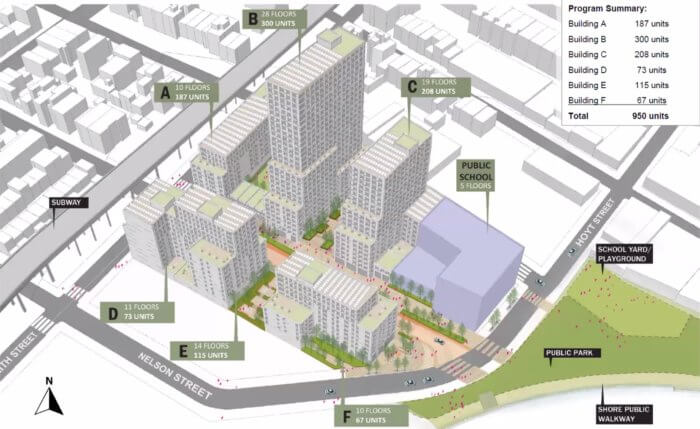
The report is wide-ranging, including recommendations to increase public school capacity in the neighborhood, scout out locations for additional affordable housing, and improve infrastructure to handle floodwaters and CSOs. Adams’ recommendations and approval as borough president are advisory, unlike the city council vote — the city planning commission isn’t bound to including the recommendations.
While the rezoning is likely to come before Mayor Bill de Blasio before the end of this year, Adams, the Democratic mayoral nominee, may oversee the project in action — meaning recommendations to “the city” and “the administration” would be recommendations to himself.
According to their website, the CPC is scheduled to vote on the Gowanus Neighborhood Plan on Sept. 24.


